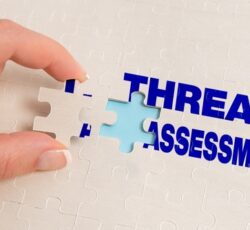 Installing a security system is a significant step towards protecting your home and ensuring the safety of your loved ones. However, with various options available in the market, it can be overwhelming to choose the right security system for your specific needs. In this blog post, we will discuss important factors to consider when installing a security system, helping you make an informed decision and achieve optimal security for your home.
Installing a security system is a significant step towards protecting your home and ensuring the safety of your loved ones. However, with various options available in the market, it can be overwhelming to choose the right security system for your specific needs. In this blog post, we will discuss important factors to consider when installing a security system, helping you make an informed decision and achieve optimal security for your home.
1. Security Requirements:
Before installing a security system, it is important to assess your specific security requirements. Consider factors such as the size of your home, the number of entry points, and any vulnerable areas that require extra attention. Analyze your specific security concerns, whether it’s protecting against burglary, fire, or monitoring for other emergencies. Understanding your security needs will help determine the type and level of security system that is appropriate for your home.
2. Professional Installation vs. DIY:
Decide whether you want to hire a security system professional to install your security system or if you prefer a DIY installation. Professional installation offers the advantage of having experts handle the installation and ensure that the system is set up correctly. However, this may involve additional costs. DIY installation, on the other hand, allows you to save money, but it requires technical knowledge and may take more time. Consider your comfort level with technology and your budget when deciding between professional installation and DIY.
3. Types of Security Systems:
There are various types of security systems available, each offering different features and functionalities. The most common types include:
Burglar Alarms: These systems include sensors on doors and windows, motion detectors, and control panels that sound an alarm when an intrusion is detected.
Video Surveillance: Video surveillance systems use cameras to monitor and record activities both inside and outside your home. These systems can deter intruders and provide evidence in case of a break-in.
Access Control: Access control systems limit access to your home, allowing you to grant or deny entry through methods such as keypad codes, key cards, or biometric authentication.
Environmental Monitoring: These systems detect environmental dangers such as fire, carbon monoxide, and water leaks, providing early warnings and protecting against potential disasters.
Consider the specific features and functions you require to determine which type of security system is the most suitable for your needs.
4. Monitoring Options:
When choosing a security system, consider the monitoring options available. Monitored systems are connected to a central monitoring station that alerts authorities or a security company when an alarm is triggered. This ensures that the appropriate response is taken swiftly in case of an emergency. Unmonitored systems, on the other hand, sound an alarm but do not notify a monitoring station. Instead, you or your neighbors would need to respond to the alarm. Decide which level of monitoring is best for your situation, considering factors such as response time and costs.
5. Integration with Smart Home Technology:
If you have a smart home or plan to incorporate smart technology in the future, consider a security system that can integrate seamlessly with your existing or future smart home devices. This integration can allow you to control your security system through voice commands, smartphone apps, or other smart devices. It also provides the opportunity for enhanced automation and convenience, allowing you to remotely monitor and control your security system while you’re away.
6. Scalability and Expandability:
When selecting a security system, think about the future and whether it can accommodate any expansions or changes you may wish to make. Determine if the system is scalable, allowing you to add more sensors, cameras, or smart devices as the need arises. Additionally, check if the system can be easily upgraded with new features or technologies in the future to ensure that your investment remains relevant and adaptable.
Summary:
Installing a security system is an important step towards protecting your home, but selecting the right system requires careful consideration. By assessing your security requirements, deciding on professional installation or DIY, considering the different types of security systems available, evaluating monitoring options, exploring integration with smart home technology, and ensuring scalability and expandability, you can make an informed decision. Remember that a well-designed and properly installed security system provides peace of mind and enhances the safety of your home and loved ones.
